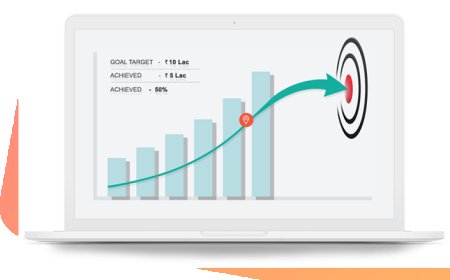Revolutionizing Finance: The Best AI Tools for Smarter Financial Management
Discover the best AI tools for finance that streamline forecasting, automate accounting, reduce risk, and enhance financial decision-making.

Artificial Intelligence (AI) is rapidly transforming the finance industry. From automating repetitive accounting tasks to forecasting financial trends with pinpoint accuracy, AI is no longer a futuristic concept its a present-day necessity. Businesses are adopting AI to streamline operations, improve accuracy, and make real-time financial decisions. This article explores the best AI tools for finance that are driving innovation and helping companies gain a competitive edge.
Why AI Matters in Finance
Finance involves massive amounts of data, strict compliance requirements, and the need for timely decision-making. Traditional financial systems often fall short when it comes to speed and accuracy. AI bridges this gap by providing:
-
Automated data entry and reconciliation
-
Real-time financial analytics
-
Fraud detection and risk assessment
-
Smarter forecasting and budgeting tools
With AI, financial teams save time, reduce errors, and focus more on strategy.
1. AI in Financial Services: A Growing Trend
AI in financial services is not limited to large banks or investment firms. Today, startups, SMEs, and enterprises alike are embracing AI-driven platforms to handle everything from payroll processing to investment modeling. This shift is helping businesses make faster, data-backed decisions.
2. Leading Financial Automation Tools
Here are some of the best AI tools that are reshaping financial management:
a. Zeni All-in-One AI Accounting
Zeni offers fully automated bookkeeping, bill payments, and financial reporting. Designed for startups and growing companies, its a powerful example of intelligent accounting platforms.
b. Kavout AI for Investment Insights
Kavout uses machine learning to analyze financial markets and generate predictive signals. Ideal for portfolio managers and investors, its one of the top tools using predictive analytics for finance.
c. Vic.ai Invoice Automation & AI Accounting
Vic.ai automates accounts payable with AI. It learns from historical data and improves over time, making it a top choice for companies wanting to streamline their financial workflows.
d. Fyle AI Expense Tracking
Fyle integrates with tools like Gmail and Slack to track employee expenses in real-time. A great option for businesses seeking financial automation tools with seamless integration.
e. Planful AI-Powered Budgeting and Forecasting
Planful is ideal for finance teams needing robust AI-powered budgeting software. It helps companies create dynamic budgets and financial models with real-time collaboration.
The Game-Changer: Best AI Tools for Finance in the Center of Strategy
At the core of modern financial transformation lie the best AI tools for finance. These platforms do more than automate they help finance teams anticipate market shifts, detect fraud early, and stay agile in a competitive business environment.
By integrating AI into daily financial operations, businesses gain insights that traditional tools simply cant provide. From reducing operational costs to improving decision-making speed, the best AI tools for finance have become a necessity not a luxury.
3. How Predictive Analytics is Shaping Finance
One of the biggest advantages of AI is its ability to predict future trends based on historical data. Predictive analytics for finance helps companies forecast revenue, identify cash flow gaps, and make investment decisions with confidence.
Tools like IBM Watson and DataRobot provide advanced modeling and simulations, making them ideal for large enterprises with complex financial structures.
4. Benefits of AI Integration in Finance
Implementing AI tools in your financial systems provides a wide range of benefits:
-
Efficiency: Reduce time spent on manual data entry and reconciliation
-
Accuracy: Minimize human error in calculations and reports
-
Speed: Get real-time insights for faster decision-making
-
Scalability: Easily handle increasing data as your business grows
-
Risk Reduction: Detect irregularities and fraud faster than traditional systems
5. Choosing the Right AI Tool for Your Business
When selecting an AI tool, consider your companys size, budget, and specific financial needs. A small business may prioritize expense tracking and basic accounting automation, while a larger enterprise might need full-scale financial modeling and forecasting.
Look for tools that are:
-
Easy to integrate with your current software
-
Scalable as your business grows
-
Supported with training or customer service
-
Designed with strong data security protocols
Conclusion
As financial challenges grow more complex, the demand for intelligent tools is rising. The best AI tools for finance are helping businesses become more agile, efficient, and data-driven. From AI in financial services to AI-powered budgeting software, these tools are shaping the future of business finance.
If you're ready to future-proof your operations, adopting AI-driven financial tools is the smartest investment you can make today.





































